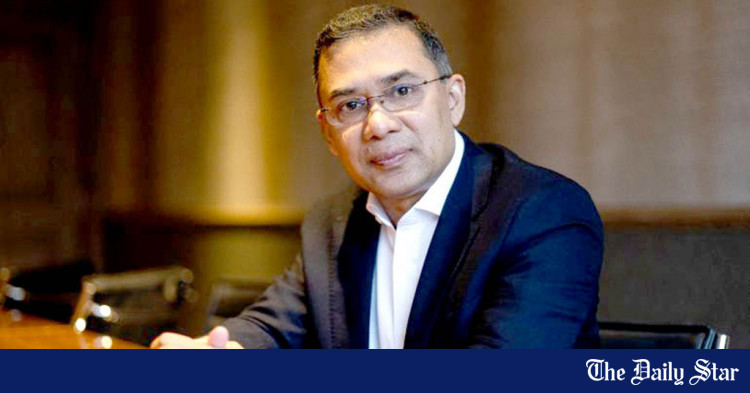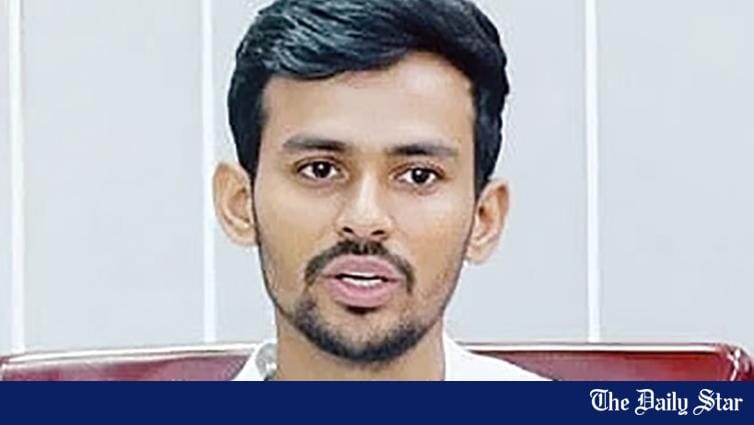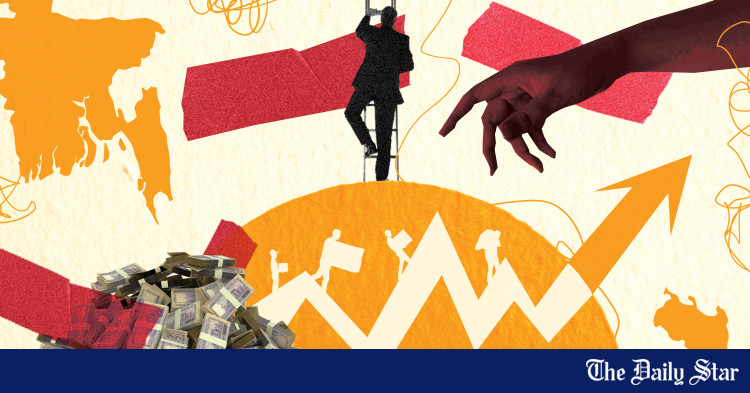Saif
Senior Operative
- 13,242
- 7,269
- Origin

- Axis Group

- Copy to clipboard
- Thread starter
- #113

Take firm control of ongoing situation
BNP’s Acting Chairman Tarique Rahman yesterday said the recent events in Dhaka and other parts of the country should not be seen as isolated incidents, but as a part of a conspiracy to destablise the country.
Take firm control of ongoing situation
Tarique calls upon interim govt

Photo: UNB
BNP's Acting Chairman Tarique Rahman yesterday said the recent events in Dhaka and other parts of the country should not be seen as isolated incidents, but as a part of a conspiracy to destablise the country.
He claimed that a coordinated attempt to create chaos across the nation is becoming increasingly evident, with growing signs of intolerance among the public.
He made the statement in a press release signed by BNP's Senior Joint Secretary General Ruhul Kabir Rizvi.
Tarique expressed concern over the growing activities of those who are destabilising the state's stability, calling it alarming.
He also called on the interim government to take firm control of the situation, warning that if the government fails to demonstrate effective leadership, the public may become increasingly intolerant.
Addressing the rising cost of living, Tarique said if the government fails to control the market and bring essential goods within the reach of the people, conspirators may use this issue to destabilise the government.
He pointed to the associates of the fugitive autocrat, claiming they are waiting for an opportunity to capitalise on the situation.
In his statement, Tarique urged the public to remain calm and exercise patience, emphasising the importance of staying vigilant and alert to the situation.
Tarique calls upon interim govt
Photo: UNB
BNP's Acting Chairman Tarique Rahman yesterday said the recent events in Dhaka and other parts of the country should not be seen as isolated incidents, but as a part of a conspiracy to destablise the country.
He claimed that a coordinated attempt to create chaos across the nation is becoming increasingly evident, with growing signs of intolerance among the public.
He made the statement in a press release signed by BNP's Senior Joint Secretary General Ruhul Kabir Rizvi.
Tarique expressed concern over the growing activities of those who are destabilising the state's stability, calling it alarming.
He also called on the interim government to take firm control of the situation, warning that if the government fails to demonstrate effective leadership, the public may become increasingly intolerant.
Addressing the rising cost of living, Tarique said if the government fails to control the market and bring essential goods within the reach of the people, conspirators may use this issue to destabilise the government.
He pointed to the associates of the fugitive autocrat, claiming they are waiting for an opportunity to capitalise on the situation.
In his statement, Tarique urged the public to remain calm and exercise patience, emphasising the importance of staying vigilant and alert to the situation.










